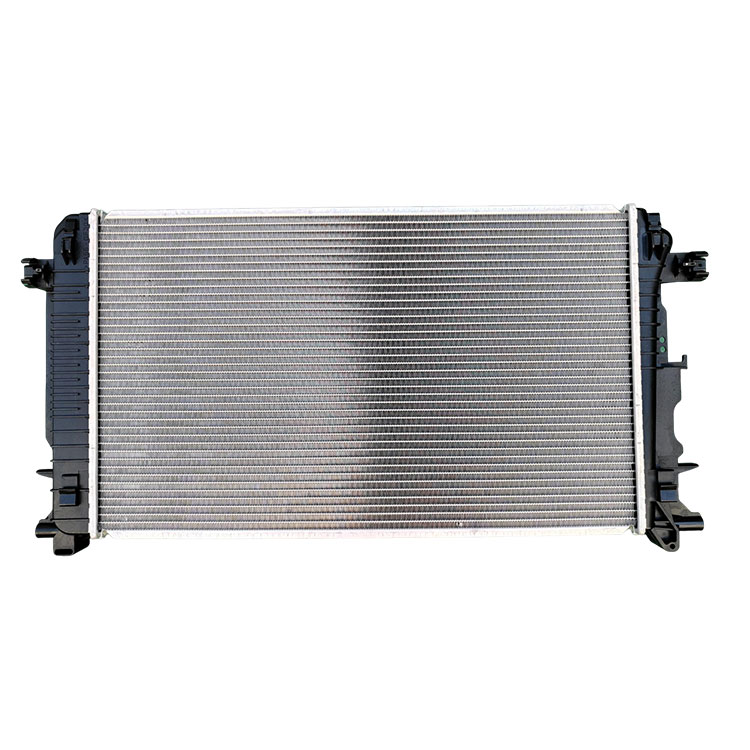Understanding the Primary Function of an Auto Radiator in Your Vehicle
2025-01-08
When it comes to vehicle maintenance, there are a few components that tend to be overlooked until something goes wrong. One of these often-underappreciated yet crucial parts of your vehicle is the auto radiator. Whether you’re a car enthusiast or just someone who wants to understand more about how your vehicle works, it’s important to understand the radiator’s primary function and its role in keeping your engine running smoothly.
What is an Auto Radiator?
The auto radiator is a core component of your vehicle’s cooling system, designed to regulate the temperature of the engine. Without it, the engine would overheat due to the excessive heat generated during the combustion process. Essentially, the radiator prevents the engine from getting too hot, ensuring that it runs at the optimal temperature for maximum performance.
But how does it achieve this? Let’s break it down.
Primary Function: Preventing Engine Overheating
The primary role of the radiator is heat dissipation. The engine generates a significant amount of heat as fuel is combusted to power the vehicle. If this heat isn’t managed properly, the engine can become dangerously hot, which can lead to serious damage or even complete engine failure.
This is where the radiator steps in. It works by circulating coolant (a mixture of water and antifreeze) through the engine block. As the coolant absorbs heat, it becomes hot. The radiator then facilitates the cooling process by passing the hot coolant through a series of thin tubes surrounded by metal fins. Air, drawn in through the vehicle's grille, flows across these fins and cools the hot coolant as it passes through the radiator.
The Cooling Process: How It Works
1. Coolant Circulation: The engine's water pump circulates coolant through the engine, absorbing heat as it moves through the engine block, cylinder head, and radiator.
2. Heat Transfer: The hot coolant enters the radiator and flows through a network of thin, hollow tubes. Surrounding these tubes are metal fins, which help dissipate the heat into the surrounding air.
3. Airflow: As the vehicle moves, air flows through the front grille, passing over the radiator fins and carrying the heat away from the coolant.
4. Coolant Return: After the coolant has lost its heat in the radiator, it is circulated back into the engine to continue the cycle, keeping the engine at a safe operating temperature.
Why is Engine Cooling Important?
Engines are designed to operate at specific temperatures, typically between 195°F and 220°F (90°C to 105°C). If the engine gets too hot, it can cause the following problems:
- Warped or cracked engine parts: Excessive heat can cause engine components to expand and distort, leading to permanent damage.
- Decreased engine efficiency: Overheating can reduce the engine’s efficiency, leading to lower performance and fuel economy.
- Complete engine failure: In extreme cases, overheating can result in the complete breakdown of the engine, which is both costly and time-consuming to repair.
By regulating engine temperature, the radiator helps avoid these issues, keeping your vehicle running smoothly and extending the life of your engine.
Other Functions of the Radiator
While the primary job of the radiator is to cool the engine, it has a few additional roles to ensure the overall health of your vehicle:
- Maintaining Optimal Temperature: The radiator helps maintain the engine at an ideal temperature, even during varying driving conditions, whether you're driving in the city, on the highway, or in hot weather.
- Preventing Freezing: The coolant mixture used in the radiator also prevents freezing in cold weather, ensuring that the engine operates efficiently year-round.
The auto radiator plays a vital role in keeping your engine from overheating and ensuring the longevity and efficiency of your vehicle. By dissipating the heat generated during combustion, the radiator helps keep the engine operating at an optimal temperature, preventing costly damage and improving overall performance. Regular maintenance, including checking the coolant level and ensuring that the radiator is free from leaks or blockages, is essential to keep your vehicle in top condition.



